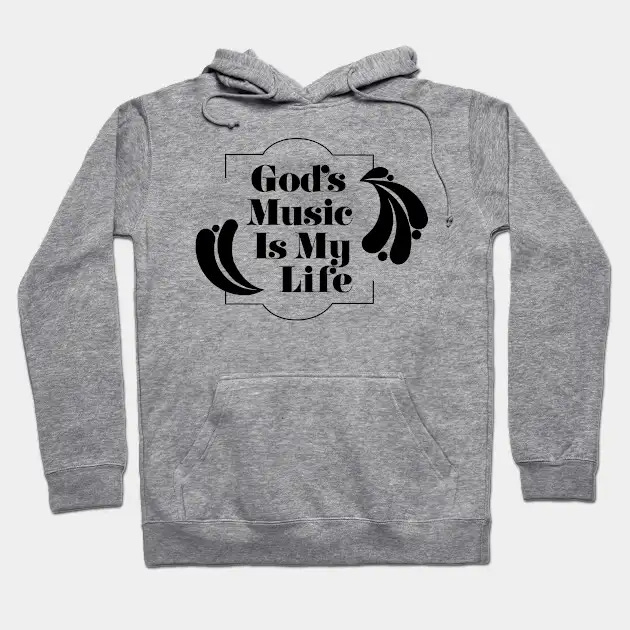Turning Fifty: Meg Christian and The Rambos
Celebrating the fiftieth anniversaries of classics from the Women's Music and Southern Gospel catalogs.
50th Anniversary (1974)
Meg Christian—I Know You Know—Olivia Records
That this year has come and gone without an acknowledgement of the anniversary of this groundbreaking album from any major music writer is shocking to me.
Meg Christian, credited with conceptualizing the idea of Women’s Music, rejected the idea that music by, about and for other women, had to be manipulated and made palatable for men who ran the music industry and manufactured it for the masses. She also rejected the idea that she had to talk or think about them at all, imaginging what music created outside of the male gaze might sound like. When she began making music with the intention of talking to and connecting with other women, she noticed the intense and visceral response from her audience. When she and a group of women formed Olivia Records, it was with the intention of creating a channel through which women could not only make music together, but take up aspects of the business that had previously been closed to them. The women of Olivia created a network of photographers, graphic designers, studio musicians and engineers, even printers, record manufacturers and distributors who all happened to be women.
Meg’s album I Know You Know was Olivia’s first full-length release and what a statement it is. She transforms Jimmy Webb’s “The Hive” and Rolf Kempf’s “Hello Hooray” into feminist statements, drawing out a meaning that didn’t exist in previous recordings of these songs. A long-time curator of recordings by women, Christian covers singer-songwriter Judy Mayhan’s “Freest Fancy” and Linda Lewis’ “Goodbye Joanna,” winking at these artists who never reached the type of commercial success they deserved, as if to say “But I am listening.”
These songs written by ‘others’ are not, however, the foundation upon which I Know You Know was built. At the center of the album is Christian herself and her strengths as a singer/songwriter/musician. Her compositions are introspective, but not so personal that they can’t have a universal appeal for her intended audience. The romantic “Valentine Song” and “Morning Song” bask in the glory of love, while “Scars” and “Song to My Mama” excavate the trauma of repressing and coming out. In the tradition of southern storytellers, “Ode to a Gym Teacher” is the first in a series of songs that reflected her penchant for spinning a tale with humor, candor and camp.
I Know You Know (along with Alix Dobkin’s Lavender Jane Loves Women) began a revolution for women who were makers of music and for women, specifically lesbians, who wanted to hear music made by and for them. Meg Christian was a visionary for music that held commercial possibility (while simultaneously being shut out of the mainstream) as well as radical audacity—a tension that contemporary Christian music, another identity and culture based musical form evolving at the same time, would hold in the decade to come.
Yours Until He Comes—The Rambos—Heart Warming Records
The emergence of contemporary Christian music in the early 70s—then called Jesus Music—shifted the very foundations of what church music was, what it was intended to do and who it was intended to reach. Southern gospel groups like The Speer Family, the Blackwood Brothers, The Stamps Quartet and the Happy Goodmans covered a broad swath of sounds and became some of the most commercially viable groups in the decades leading up to 1974, but the emergence of The Rambos in the early sixties marked another kind of shift.
While The Rambos’ early albums (both as The Gospel Echoes and The Singing Rambos) certainly indicate the significance of Dottie Rambo’s songwriting, their Grammy-nominated 1967 release Gospel Ballads indicated their diversity and willingness to expand beyond the conventions of southern gospel. In addition to the group’s incorporation of folk, Black gospel and country-leaning pop sounds on their own recordings, Dottie’s groundbreaking, Grammy-winning 1968 release It’s The Soul of Me elucidated just how fundamental Black gospel was in the cultivation of popular music, while daughter Reba’s solo debut (On The Folk Side of Gospel) that same year began her own foray into the sounds of popular music. Buck Rambo’s solo debut in 1969, Country Boy Gospel, explored just that—a commercial, country sound that wouldn’t have been out of place on mainstream country radio stations.
Between 1968 and 1974, The Rambos had scored dozens of hits and gained a reputation beyond their core, church based audience. They’d appeared on The Porter Wagoner Show with Dolly Parton, performed for troops in Vietnam via United Service Organizations, and become friends with a plethora of mainstream performers like Elvis Presley and Loretta Lynn. 1972’s Soul in the Family and 1973’s Sing Me On Home were released as the family group was on a hiatus as Buck Rambo navigated health challenges and Reba toured as part of Andraé Crouch and The Disciples. The albums are among their most polished and forward-thinking, sporting a production style that was in step with what country artists like Conway Twitty and Tom T. Hall were doing musically.
Yours Until He Comes further explores The Rambos’ crafting of their unique brand of Christian country. The album’s most remembered track, “New Shoes,” is an important marker in Dottie Rambo’s catalog. While she’s remembered for her anthemic works like “We Shall Behold Him” and “He Looked Beyond My Fault,” she was also capable of fun, witty tunes that rode on a rollicking rhythm. It’s impossible to look back at “New Shoes” and not see how it connects with “I Go to the Rock,” a song she would record just three years later.
On the flipside of the coin, the album’s title track is one of Dottie’s most moody, reflective compositions and performances. She ruminates about her “broken heart and bitter tears” with a solemnness that is the epitome of realness. The melancholy bleeds over into “Touched With His Love” and “The Garden of My Heart.” “Touched With His Love,” in particular, marks a progression into and release of the meatier kinds of songs she was writing but had been hindered from recording by labelheads who believed them to contain “too much preaching in a song.” If “New Shoes” is a precursor to “I Go to the Rock” (which the label had also told her was “too rock and roll”), then “Touched With His Love” is a sibling to “I Will Glory in the Cross.”
Woven in between these songs are three compositions by Reba Rambo which reflect the freshness of the personal revival/renewal she’d been experiencing as a result of the Jesus Movement and her time on the road with Crouch’s Disciples. “Because I Feel It” is an important statement that validates the reality and importance of sensory, emotional connection of one’s faith without invalidating the value of study and intellectual understanding of one’s relationship with God. She references the fear instilled by fire and brimstone sermons in her youth (which she’d referenced in 1970’s “It’s a Long, Long Line), but she moves beyond it as she finds an inner knowing rooted in love and grace, not terror. Lyrically and musically, it is an indicator of Reba’s swift growth as a writer and vocalist since her return to the family group, and retrospectively, the kind of song that feels connected to her 1976 breakout solo release, Lady. “Sacred Treasures” similarly reflects on her childhood experiences with faith, parsing out the simple truths and seeing the ways they reflect back in her present life.
Significantly, Yours Until He Comes closes with two favorites of the Jesus Movement, Jimmy and Carol Owens’ “Holy, Holy” and Andraé Crouch’s “Bless His Holy Name,” dipping the family’s toes in the waters of Jesus Music. With their 1975 releases, There Has to be a Song and These Three Are One, The Rambos would further wade into the pool of contemporary Christian music, with radio hits like “By His Love Possessed” and “Just When I Need Him.” Sadly, not a single one of The Rambos’ original albums are available digitally…but you can listen to the whole album on YouTube by clicking here.
Available Now!
Yes! T-shirts, hoodies, caps, totes, phone cases, stickers and mugs are now available via TeePublic!
Click here to browse and purchase!
Did You Miss These?
Albums with Landmark Anniversaries You Don't Want to Miss (1964-1974): Part 1
At the beginning of the year, I’d planned to write more extensive features on some of these albums. I ended up with more reissue/liner note work than I’d anticipated and the year got away from me…but I didn’t want it to end without bringing some attention of these great works that I haven’t seen anyone else write about. So, welcome to The Anniversary E…
4 More Albums Turning 40 You Should Hear
Last month, I wrote about 4 of my favorite releases from 1984 that celebrate their 40th anniversary this year. When 2024 began, I made a list of albums I hoped to cover extensively. Time isn’t allowing me to do that deep dives that I would ordinarily do, but, again, it’s important to me to acknowledge that these albums happened.
4 Albums Turning 40 That You Should Hear
I had high hopes of being able to write extensive pieces about a dozen or so albums that are celebrating their 40th anniversary this year—but other obligations and the strictures of time are making that impossible. Nonetheless—they are important albums and I want to acknowledge their importance in the ways that I can.












Love this entire article . Articles as it is rich in history but so current . Thank you Tim for the amazing entertainment .
Thank you for this honoring of these amazing singers and composers. What a joy to immerse in their music, revisiting Meg and gaining even more appreciation for the complex legacy of the Rambos.